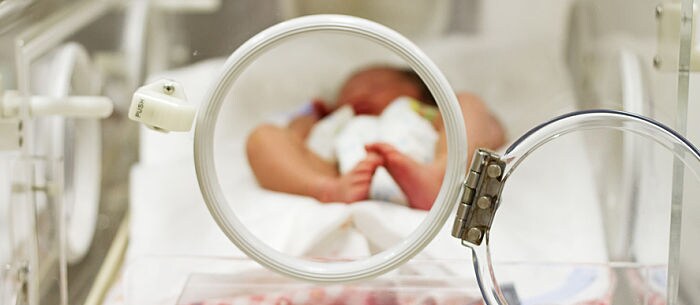No one is ever really prepared for having a preemie baby, but sometimes the unavoidable happens. A premature baby may have more health problems and require longer hospital stays than a baby born full-term. But how can a parent be ready for that?
Read up on these nine facts:
- Stocking Up Ahead of Time Can Be Smart
Like any expecting parent, the sooner you start preparing for baby, the better. Dr. Danelle Fisher, the vice chair of pediatrics at Providence Saint John’s Health Center, says, “Expecting parents can keep the following things at home starting around the end of the second trimester: newborn diapers, wipes, diaper rash ointment, infant shampoo, a digital thermometer, a bassinet, some receiving blankets, a baby monitor, a rocking chair or large exercise ball (to soothe a crying infant). They should also choose a pediatrician around the beginning of the third trimester.” Having these things in place can save your sanity in case your baby does arrive early.
- Your Baby Might Not Leave the Hospital With You
One of the hardest things about having your baby early is seeing him in the hospital. The earlier he is born, the more help he will need. If your baby is born before 32 weeks, he will likely need extra care in a neonatal intensive care unit (NICU) until he can breathe and eat comfortably on his own, says Dr. Jose A. Honold. “Babies born between 32 and 37 weeks may only need care within a special care nursery. Most premature babies are ready to go home around their due date, or a little earlier.”
- Your Baby Might Have Trouble Breathing and Feeding
The suck, swallow, release reflex that comes naturally to most full-term babies hasn’t developed in your preemie. According to Dr. Honold, preemie babies may not be able to suck well and they may need some breathing help. “These babies may need to be on an incubator until maturity, at approximately 34 to 36 weeks, and many of them will need assistance with some form of ventilation, until the lungs are developed.”
- You’ll Memorize the NICU Schedule
Learning the NICU’s schedule and their rules regarding visitors will help you get the most out of seeing your baby. Avoid coming and going during shift changes. Instead, visit during feeding times so you can bond with your baby.
- Expect to Scrub Down
When you visit the NICU, you must wash your hands and arms thoroughly. Usually, there is a sink right as you walk in with instructions on proper hand washing. Keep some hand lotion on you to help avoid dry skin from the constant washing.
- Social Workers Can Help You
Many hospitals have a social worker connected to the NICU. They can help you find an affordable hotel if you don’t live close to the hospital. They will provide you with information on services your child may need once you are discharged, and will help make the transition from hospital to home go smoothly. They can also help you communicate better with the medical staff if you need to understand an issue more thoroughly.
- Your Baby Can Come Home Once She’s Stable
Dr. Fisher explains that there are many things that a preemie baby must be able to do before going home. “Premature infants [are] stable enough to go home with parents when they can maintain their own body temperature in an open crib, when they can feed with formula or breast milk without using supplemental tubes and when they can gain weight regularly.”
- You Might Need to Continue Care at Home
“Some babies require oxygen due to severe lung problems so they may go home on oxygen through a nasal cannula,” says Dr. Fisher. “Other babies may have problems with pauses in breathing called apnea or a decreased heart rate called bradycardia. These babies may need to go home on an apnea monitor which checks the heart and respiratory rates.”
- There Might Be Long-Term Effects
“The overall outcomes for premature babies are good, but there are risks to being born early,” explains Dr. Honold. “They are at risk of neurodevelopmental disabilities and cerebral palsy, inversely related to prematurity. The more immature the higher the risk.” Though many preemie babies go on to make a full recovery, knowing all the possible outcomes can help you cope with an already difficult situation.
Stephanie Glover is the writer and photographer behind A Grande Life. When she doesn’t have her camera in her hands, you’ll find her with a cup of coffee.





